

.jpg)
In Sarajevo, 150 participants reflected a shared hunger for gospel-centered encouragement and practical equipping for evangelism.
.jpg)
Evangelicals from two generations and diverse church backgrounds see the fruit of collaboration, says Croatian Jasmin Avdagić. A festival brought together 1,300 people from countries of the former Yugoslavia region.
.jpg)
Around 1,300 young people from former Yugoslavia countries gathered in Šibenik (Croatia). Fellowship, Bible training and evangelism were the priorities of a programme strongly supported by Christian leaders in the region.
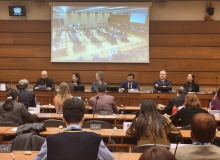
“Religious freedom gives independence, reduces harassment and acknowledges societal acceptance”, says the UN special rapporteur on FORB at an event organised in Geneva.
.png)
Should we Christians just stay in our little church and family bubbles, resigned and passive, and wait for Christ to come? The view of a lecturer in Belgrade.
.jpg)
A student and a university professor from Belgrade explain why their understanding of the Bible drives them to join the protests for more democracy and a dignified future.
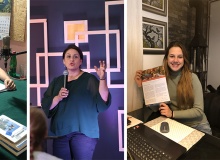
From small beginnings in Serbia and Croatia, TWR’s Women of Hope programs are helping listeners confront difficult issues and build confidence in Christ.
.png)
Having the songs on YouTube is important for the creators. Roma people are avid users of their phones and social media. “Kids spend a lot of time on YouTube whether we like it or not”, says Misa.
.jpg)
“Our reputation among the non-Roma people is very recognisable in a good way”, says Pastor Selim Alijevic. Before having a building, the church helped start two dozens of other congregations.
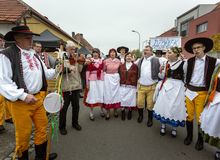
TWR’s Central and Eastern Europe ministries include 15 countries and 18 language groups, partnering with like-minded organizations.
.jpg)
An evangelical leader in Belgrade shares about the mood of the country after the violence that killed 17 people. “On Sunday churches did not sing. Instead, we were praying, and a Christian psychologist shared about how to find support and encouragement”.
.jpg)
Evangelical Christians in the country pray and reflect after 17 were killed in two consecutive mass shootings.
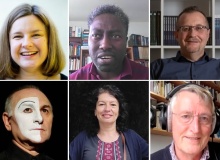
The views of 10 European Christians, including a Protestant worker expelled from Turkey, an Albanian pastor defending his freedom of expression, an Ukrainian missionary seeking to return home, and a Spanish mime successful in Germany.
.jpg)
Even when governments hinder access to certain technologies, TWR is able to reach beyond the barriers.

We travelled nearly 7,000 km, through 15 nations with either a Muslim, Orthodox, Catholic or atheistic background. We encountered 9 currencies, 17 border crossings, and met 205 people.
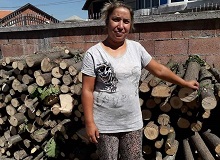
Mirela’s testimony highlights some of the extreme circumstances that Roma people often live in, but also reveals how Jesus makes a difference in their lives.
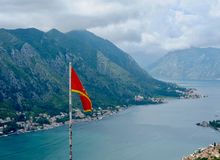
For the first time in Montenegro's history, the ruling party has lost its majority due to a confrontation with the Orthodox Church. Evangelical Christian Danijel Petkovski analyses the current situation in this small Balkan country.

Jelena Sivulka, counsellor and founder of Hanina nada, talks about finding hope in Christ when dealing with disabilities. “God loves us for who we are. I share that with families of kids with special needs”, she says.

The Bulgarian Orthodox Church agreed “to intercede and advocate” for the Macedonian Church in its hopes for canonical independence.

A Cameroonian studying in a French university and a Serbian High School student share their impressions after the European Student Evangelism conference “Presence 2017”.

“In the midst of pain, God promised that it can be really well with your soul”, psychologist Jelena Sivulka says in an interview about the value of suffering in Christian life.

One in three citizens think corruption is one of the biggest problems facing their country. Ukraine, Moldova, Bosnia and Herzegovina and Spain are the worst judged.

Samuil Petrovski, President of the Serbian Evangelical Alliance, and General Secretary of the IFES Serbia writes about the Nick Vujicic’s visit to Serbia, Macedonia and Montenegro last spring.

Two consecutive Bible competitions inspired evangelical churches in Bulgaria. 135 teenagers and 43 university students coming from a dozen of towns compared Scriptural knowledge.

Rising anti-migrant sentiment helps the far-right candidate win the first round of Presidential election, and eliminates both Social Democrats and Conservatives. In Serbia, pro-EU Prime Minister Aleksandar Vucic repeats victory.

Las opiniones vertidas por nuestros colaboradores se realizan a nivel personal, pudiendo coincidir o no con la postura de la dirección de Protestante Digital.